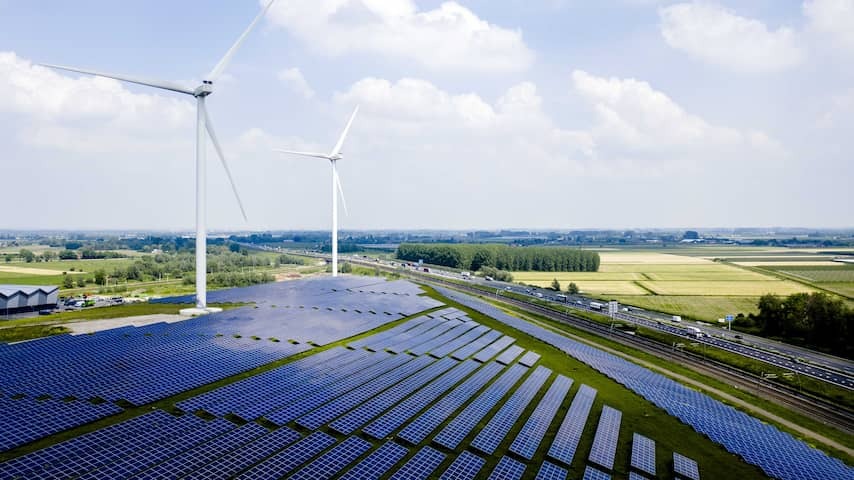
The Amount of Solar Power Generated in The Netherlands Has Grown Again in 2024, But Less Than Before. This is accordance to the solar pv monitor of the Netherlands Enterprise Agency. The Decreasing Growth May Be Good for Some Entrepreneurs.
The Amount of Electricity That Solar Panels Can Generate Increased by Almost 20 percent in 2024, Accordance to Research by the Netherlands Enterprise Agency (RVO). About 18 percent of all electricity is generated by the sun and we can generate 4.3 Gigawatt Peak (GWP) More. However, The Increase is 4 percentage points less than in 2023. The Abolition of the Netting Scheme and the Full Electricity Grid Weaken The Growth.
“Solar Parks and New Commercial Buildings with Panels on the Roof are delayed because canot be connected to the electricity grid,” Says RVO Spokesperson Olivia Manders. Existing homes with a power connection can add panels without problems. Households are doing that less and less now that the netting scheme is stopping.
“The Netting Scheme is extremely profitable, so I understand that People Regret The Abolition,” Says Professor Machiel Mulder (Energy Economics) from the University of Groningen. With Netting, Solar Panel Holders Can Offset Their Returned Electricity to the Grid Against Their Consumed Electricity. The Difference in the Electricity Price is Always Very Favorable for the Customer.
“As soon as the scheme stops in 2027, it Depends on the supplier what you get for your returned electricity,” Says Mulder. “Research from my faculty shows that the payback period of solar panels jumps from an avarage of five to ten years without netting. A panel lasts fifteen years, so you still benefit from five years of free electricity, if you use it yourur.”
So It Still Pays To Have Solar Panels And The Energy Economist is also Positive About The Flatting Growth of Solar Energy. “In itself, it is a good development. The energy market canot keep up with the large amount of solar power, which you get negative electricity prices more and more often.” Getting paid when you turn on the dryer is nice, but it is diffress for entrepreneurs of solar and wind farms.
20 percent less yield due to negative electricity prices
2024 counted 458 Hours with a negative electricity price. The RVO Report Estimates That Solar Energy Installations, which switched off at these Times, Yielded 20 percent Less Electricity. The Market Gets More Time to Develop Due to the Decreasing Increase, for example with More Battery Storage and Devices that automatically Charge at Quiet Times. Negative Electricity Prices Should Therefore Occur Less Often, because It Costs Society Money.
Yet Manders Still Finds The Smaller Increase in Solar Power Worrying, because it means that Ferwer Solar Panels are Being Installed. “It is undesirable that we are going to lose many Sustainable Project Developers and Installers, because we will continuously to need them.” The sector is Having A Hard Time, because significant fewer new solar panels have installed this year compared to 2024.
The RVO monitor also has an estimate for 2025 and expects that the growth will decrease further. The Amount of Electricity Generated by Solar Panels Increases by 2.6 GWP. That is slightly less than half of the increase in 2024.
‘Using Electricity Smarter is a Solution’
Accordance to the RVO, The Solution Lies in Smarter Use of Electricity. This avoids negative electricity hours. About 60 percent of the solar parks can now be switched off remotely duration negative electricity hours. That Saves Money.
Suppliers and Their Customers are also Dealing with Electricity More Smartly, by Increasingly Opting for Dynamic Contracts or Energy Contract With Off-Peak Hours. The household then Lower Electricity Prices Duration Quiet Hours, when there is Enough Energy But Few Devices Are On.
“The Market for Solar Energy is really not Saturday,” Says Manders. “The Netherlands Can Generate Much More Solar Power, if we approach it smartly.”